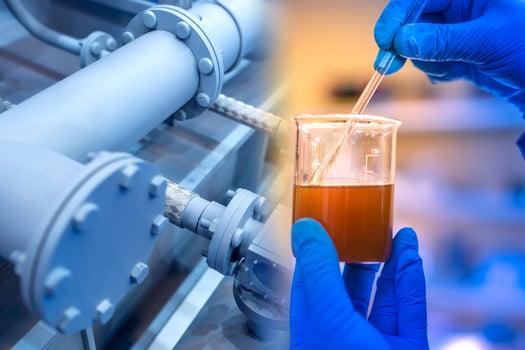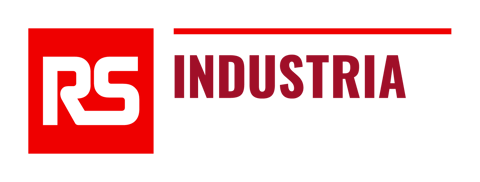Lubrication Solutions
Reduce the risk of failures, increase uptime, and plant reliability.
Best practice lubrication and oil condition monitoring can significantly increase asset life and performance, so it pays to keep on top of these precision maintenance tasks.
0%
Of lubrication failures are caused by water or particulate contamination
£0
Potential savings in downtime costs through pro-active lubrication maintenance
0%
Of energy is used to overcome friction, proper lubrication reduces this
Industrial Lubrication Expertise
Our lubrication services and oil condition monitoring solutions are designed to get the most from your plant, from identifying the right lubricant and applying it at the right point and time, to certified lab analysis to determine wear, chemistry, and contamination.
Speak to our experts today
Oil Condition Monitoring
Our on site lab keeps even ageing assets on the move with analysis of oils, greases, and coolants to ASTM and ISO standards to determine wear, chemistry, and contamination.
Find out moreManaged Lubrication Services
We work with you on a tailored lubrication solutions strategy, applying the right lubricant, at the right time and quantity, to keep your assets running smoothly.
Find out moreContact Us
Fill in your details below
Contact us
Fill in your details below.
Hygienic Lubrication Management
Hygienic storage and transport are key to eliminating failures caused by contamination. We help you fit out stores with the right lubrication solutions to reduce risks.
Find out moreLubrication Solution Design
Working with our supply partners, we can audit and help optimise your existing industrial lubrication programme.
Find out more
Contact Us
Fill in your details below.
Contact Us
Fill in your details below.
Keep Your Assets Moving
From oil condition monitoring to industrial lubrication management, RS Maintenance Solutions can optimise your lubrication, improve productivity, and drive greater reliability.
The Cost of Poor Lubrication Management
Being proactive with your lubrication programme can reduce the number of emergency repairs on your mechanical assets, alleviating pressure on your maintenance teams. This frees them to focus on important scheduled tasks, not urgent fixes.
Not being proactive, however, can result in negative impacts that spill through the entire company - see below.
-
Production Losses
If you don’t maximise the uptime of assets by implementing a robust lubrication strategy, your company will struggle to meet production targets and orders.
-
Incorrect Lubricant Use
Lack of lubrication knowledge will make it unlikely you’re using the most suitable product or handling measures, triggering a risk of using the wrong lubricant for the job at hand.
-
High Maintenance Costs
Your maintenance costs will spin out of control, while capital equipment loses its long-term value through expensive, ad-hoc servicing, replacements and repairs.
-
Increased Risk of Failure
Using the wrong or contaminated lubricant reduces performance effectiveness through wasted energy, decreased component life and an increased risk of catastrophic failure.
Case study: Agricultural Food Production
THE CHALLENGE
RS worked with a global agricultural and food products provider to assess their production. During the audit, it became apparent that the single most critical asset - the shaker - had been making excessive noise for many months. The noise had become widely accepted as the ‘norm’, however failure of the shaker would lead to significant downtime.

THE SOLUTION
The RS engineering team took action during a planned outage to minimise disruption. The team cleaned down the shaker and refilled it with oil. They also replaced the faulty 2D sight-glass with a new 3D equivalent to ensure the same issue did not reoccur in the future.
THE OUTCOME
Had the shaker failed, it could have led to an estimated 60 hours of potential downtime, at a cost of around £300,000, with an additional £110,000 for a replacement. The customer praised the RS engineers, whose actions certainly avoided significant costs and impact on production.
Common Lubrication Errors
There are a number of common errors around lubrication maintenance that can cause your factory to grind to a halt:
-
Not Managing the Basics
It’s not just what you have, but how you use it. Even the most advanced condition monitoring tools will fail with a poor technique or insufficient training.
-
Poor Storage & Handling
Lubricants need to be stored in the right way – in the right environment and temperature –
or their benefits will deplete. They can oxidise, degrade, or experience additive dropout and
even have a shorter shelf life. -
Lack of Awareness
Poor training or a lack of lubrication auditing mean staff are unprepared and unable to keep on top of their lubrication strategy (if one is even in place).
-
Lack of Visibility
Prevention is better than cure –but do you really know the condition of your components and lubricants? Without knowledge of potential problems, they’re near impossible to treat.
-
Lack of Resource
Without enough engineers with the right knowledge, lubrication is mismanaged.
-
Poor Organisation
If your lubricants aren’t stored in an organised manner, using colour coding and 5S methodology, you risk using the wrong product.
-
Guesswork
If you don’t know how much lubricant to use, you may use too little for it to be effective –and too much is even more damaging than not enough. You need the right measure, for the right machine, at the right time.
2 min read
How RS Industria helped Whitby Seafood land savings & achieve sustainability goals
Dec 20, 2023 by RS Industria
2 min read
How we helped a health & beauty manufacturer to cut energy usage
Sep 29, 2023 by RS Industria


